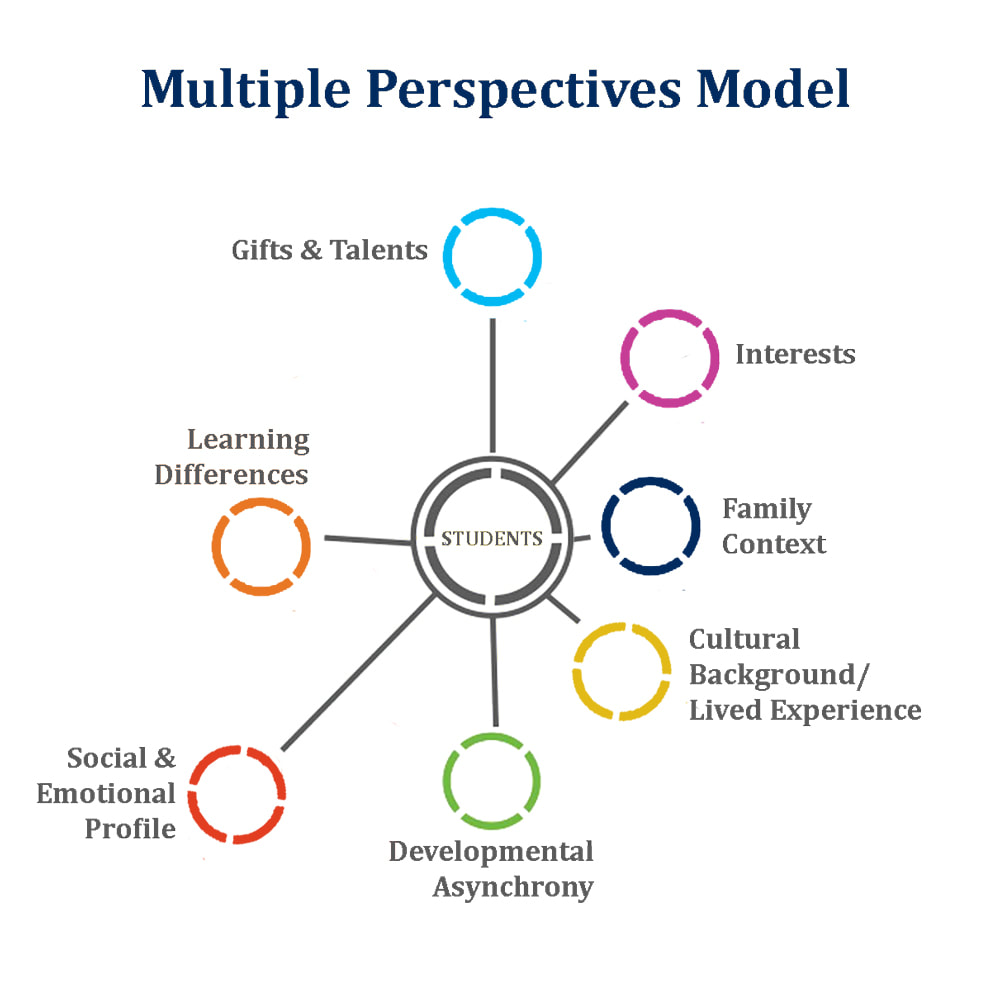Approach
The Bridges team approach allows us to explore the many internal and external variables that impact the educational experience of students. Children share many similarities and demonstrate profound differences. We celebrate and honor their complexity and design environments, programs, and curriculum to both challenge and support their journey.
Multiple Perspectives ModelBridges recognizes that in order to educate twice-exceptional students, educators must take a myriad of variables into consideration. The Bridges Academy student-centered Multiple Perspectives Model dynamically and simultaneously addresses seven highly complex critical educational variables necessary in understanding the whole child: gifts & talents, interests, family context, developmental asynchrony, social & emotional profiles, and learning differences.
Each variable must be understood independently and in connection to the whole. An exploration of these variables in the context of each individual situation helps us to fully understand the profile of each student. Strength-BasedA strength-based approach focuses on providing educational experiences designed to align with students’ strengths, interests, and talents. This includes:
|
Team Approach
Bridges Academy's teachers and specialists meet regularly to discuss the program and progress of each student. The Bridges team will also meet with parents and outside support personnel as needed to brainstorm ideas to make the student's educational experience more productive and rewarding. Whether discussing additional learning opportunities, acceleration, early college admissions, or focusing on current priority issues to be resolved, the Bridges team approach is inclusive, comprehensive, and effective.
Talent Development
Many Bridges Academy students demonstrate advanced ability for their age and grade. These talents have an opportunity in the Bridges model for further development. Bridges has found success in providing a variety of enriched curricular experiences in core academic classes, wide-ranging electives, and in special opportunity programs where students engage authentically and intellectually in relevant and creative pursuits as a regular part of their overall program. Immersed in these learning experiences, students apply their talents and academic skills to real problems and projects. In the process they deepen their understanding of academic concepts and enhance their cognitive and social skills development.
Motivated and energized by their strengths, interests, and talents, twice-exceptional learners begin to compensate for their problematic weaknesses and, in some cases, overcome them as they engage in authentic, purposeful learning.
Motivated and energized by their strengths, interests, and talents, twice-exceptional learners begin to compensate for their problematic weaknesses and, in some cases, overcome them as they engage in authentic, purposeful learning.



